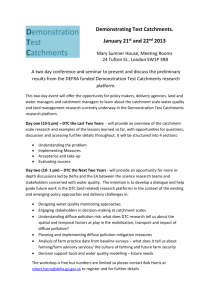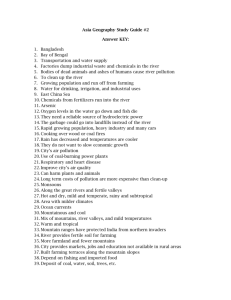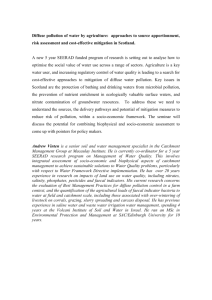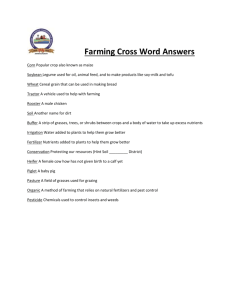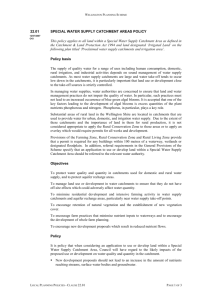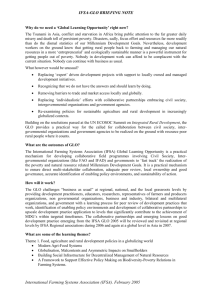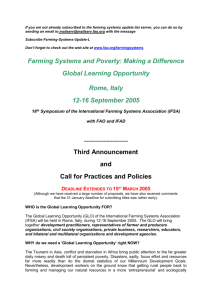The Water Framework Directive and Catchment Sensitive
advertisement
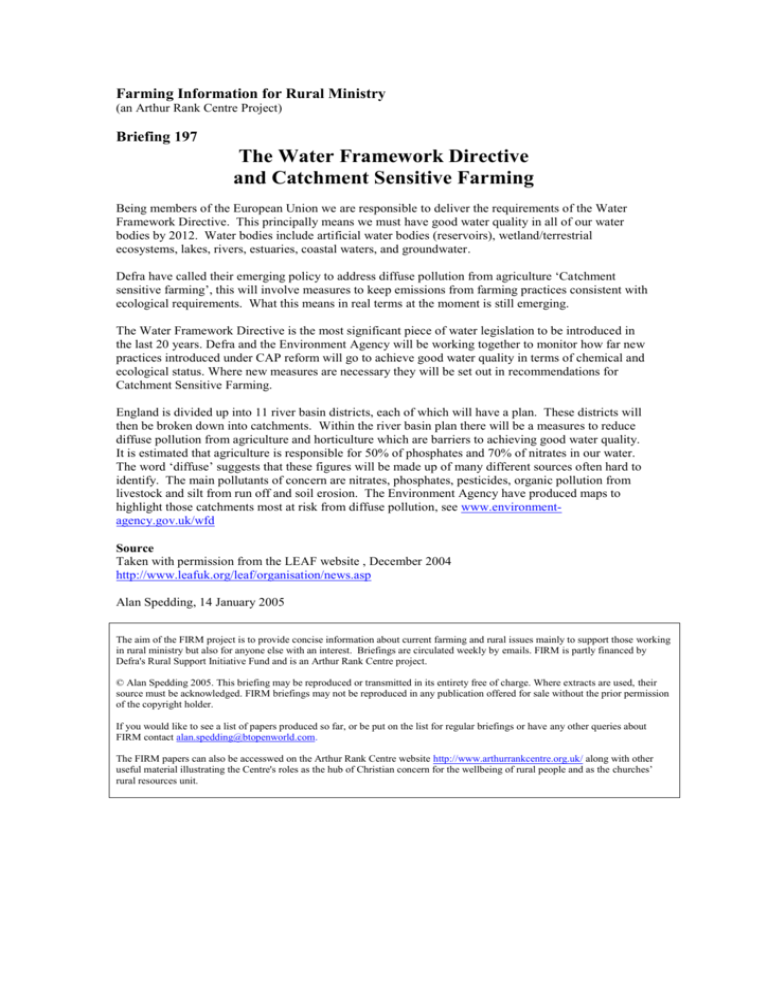
Farming Information for Rural Ministry (an Arthur Rank Centre Project) Briefing 197 The Water Framework Directive and Catchment Sensitive Farming Being members of the European Union we are responsible to deliver the requirements of the Water Framework Directive. This principally means we must have good water quality in all of our water bodies by 2012. Water bodies include artificial water bodies (reservoirs), wetland/terrestrial ecosystems, lakes, rivers, estuaries, coastal waters, and groundwater. Defra have called their emerging policy to address diffuse pollution from agriculture ‘Catchment sensitive farming’, this will involve measures to keep emissions from farming practices consistent with ecological requirements. What this means in real terms at the moment is still emerging. The Water Framework Directive is the most significant piece of water legislation to be introduced in the last 20 years. Defra and the Environment Agency will be working together to monitor how far new practices introduced under CAP reform will go to achieve good water quality in terms of chemical and ecological status. Where new measures are necessary they will be set out in recommendations for Catchment Sensitive Farming. England is divided up into 11 river basin districts, each of which will have a plan. These districts will then be broken down into catchments. Within the river basin plan there will be a measures to reduce diffuse pollution from agriculture and horticulture which are barriers to achieving good water quality. It is estimated that agriculture is responsible for 50% of phosphates and 70% of nitrates in our water. The word ‘diffuse’ suggests that these figures will be made up of many different sources often hard to identify. The main pollutants of concern are nitrates, phosphates, pesticides, organic pollution from livestock and silt from run off and soil erosion. The Environment Agency have produced maps to highlight those catchments most at risk from diffuse pollution, see www.environmentagency.gov.uk/wfd Source Taken with permission from the LEAF website , December 2004 http://www.leafuk.org/leaf/organisation/news.asp Alan Spedding, 14 January 2005 The aim of the FIRM project is to provide concise information about current farming and rural issues mainly to support those working in rural ministry but also for anyone else with an interest. Briefings are circulated weekly by emails. FIRM is partly financed by Defra's Rural Support Initiative Fund and is an Arthur Rank Centre project. © Alan Spedding 2005. This briefing may be reproduced or transmitted in its entirety free of charge. Where extracts are used, their source must be acknowledged. FIRM briefings may not be reproduced in any publication offered for sale without the prior permission of the copyright holder. If you would like to see a list of papers produced so far, or be put on the list for regular briefings or have any other queries about FIRM contact alan.spedding@btopenworld.com. The FIRM papers can also be accesswed on the Arthur Rank Centre website http://www.arthurrankcentre.org.uk/ along with other useful material illustrating the Centre's roles as the hub of Christian concern for the wellbeing of rural people and as the churches’ rural resources unit.
